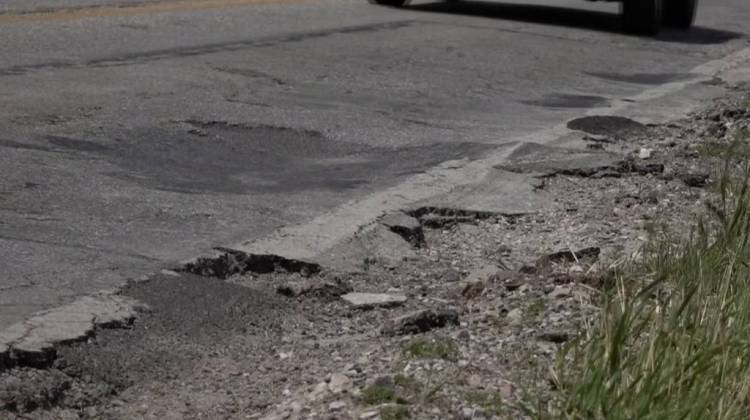
Under Indiana law, Hoosiers who apply for the federally funded Energy Assistance Program can’t have their electric or natural gas service disconnected from Dec. 1 through March 15.
Lauren Chapman/IPB NewsAs colder temperatures drive up utility bills, many people unemployed because of COVID-19 are still having trouble paying them. Local nonprofit agencies say getting Hoosiers the financial help they need is proving challenging.
They say they’re hearing from more people with overdue utility bills and at higher amounts than in the past.
“So I've been doing — in energy assistance to some capacity for over 20 years and I have never seen bills, you know, $1,800, $2,500, $3,000 bills," said Gina Gomez of Northwest Indiana Community Action.
Mary Paulsen works for the Area Four Agency out of Lafayette. She said even if her agency is able to pay part of the person’s bill, some of these bills are so high that it’s not always enough to keep them from getting disconnected.
“Some vendors won't stop that disconnect unless the pledge covers the entire disconnect amount. If it does not cover the entire disconnect amount, then the client is responsible for covering that. I had a client that owed a difference of $700 to stop her disconnect, she did not have that and has been out trying to get help," she said.
Brad Meadows is the marketing and communications director at the Indiana Housing and Community Development Authority. He said there are also more people applying for utility assistance who haven't had to before.
"I think for us, it's letting people know across the state that have been financially impacted by COVID-19 that there is assistance that's available,” he said.
Meadows said some households may qualify for additional federal funding under the CARES Act. Paulsen said many of these first-timers aren't used to the process and turn in incomplete applications — which means it’s taking longer to get them the help they need.
Some local assistance agencies are also in danger of running out of money to help their clients. Becky Zaseck is the CEO of REAL Services out of South Bend. She said her agency has used up about 48 percent of its budget for the Energy Assistance Program.
“But really only a month of applications completed. So we could easily run out of money before the end of the contract,” Zaseck said.
Under Indiana law, Hoosiers who apply for the federally funded Energy Assistance Program can’t have their electric or natural gas service disconnected from Dec. 1 through March 15. If you’re struggling to pay your bills, contact your utility or call Indiana 211.
Contact Rebecca at rthiele@iu.edu or follow her on Twitter at @beckythiele.
Indiana Environmental reporting is supported by the Environmental Resilience Institute, an Indiana University Grand Challenge project developing Indiana-specific projections and informed responses to problems of environmental change.
 DONATE
DONATE






 Support WFYI. We can't do it without you.
Support WFYI. We can't do it without you.